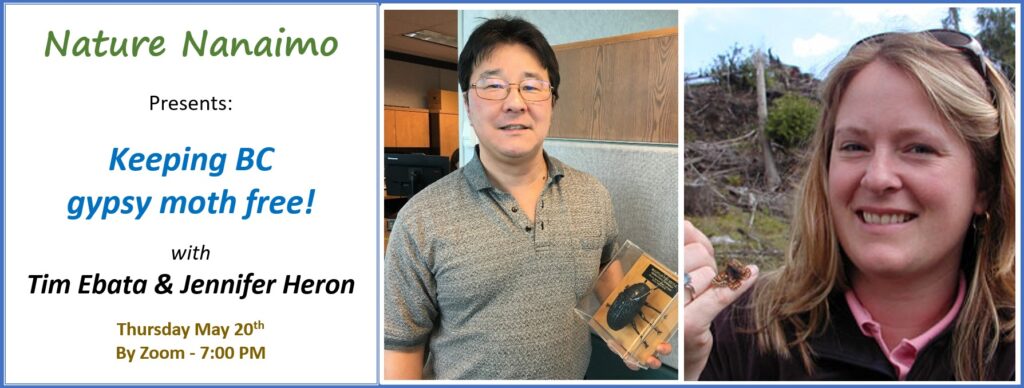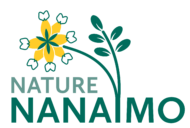7 PM via Zoom
Tim will describe the ongoing efforts to keep the highly destructive gypsy moth (both European and Asian) from establishing in B.C. He will discuss the biology, the known ecological and economic impacts, the integrated pest management options that have evolved since 1979 when GM was first treated in Kitsilano, and touch on some issues that make this program highly effective while being somewhat controversial. Jennifer will cover efforts to survey for rare and endangered lepidoptera in areas that may potentially be treated for gypsy moth to fully understand where conflicts could arise.
Tim Ebata grew up in Vancouver and went to UBC to study bugs and fish in the department of zoology graduating with a BSc in 1982 followed by a MSc from the faculty of forestry in 1986 in forest entomology. He began his forest service career as the regional entomologist in Smithers from 1986 to 1995 then moved to HQ working on provincial level forest health projects and eventually became the Forest Health officer responsible for administering and coordinating the provincial forest health program. He has been directly involved in gypsy moth eradication programs for 22 years prior to his retirement on April 1st of this year.
Jennifer Heron has been working on invertebrate conservation topics beginning with her MSc in 1998 studying ants in the Okanagan. She is currently the provincial Invertebrate Conservation Specialist with the B.C. Ministry of Environment. She works with other invertebrate specialists, conservation and stewardship groups to develop recovery-planning approaches and conservation status ranks to invertebrate groups and achieve common public outreach goals. Jennifer is also co-chair of the Arthropods Specialist Subcommittee for the Committee on the Status of Endangered Wildlife in Canada (COSEWIC).

